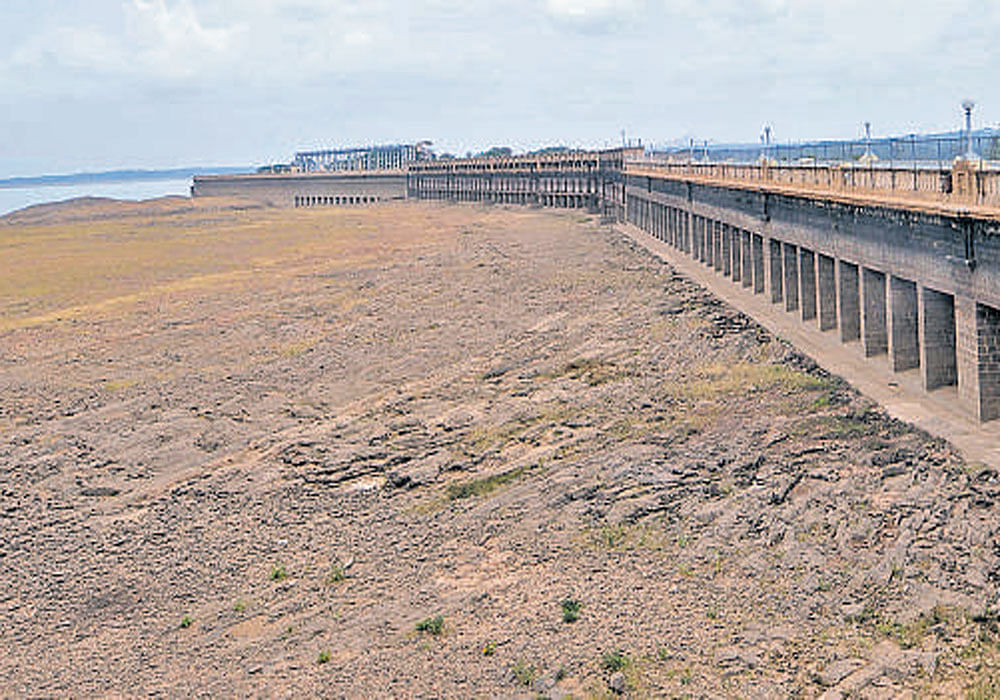Poor storage in KRS, Kabini may hit Bengaluru water supply
Last Updated IST

Such a move may have a cascading effect on water availability to consumers in Bengaluru.
The Water Resources Department may soon be forced to regulate supply to BWSSB at the main source - Cauvery river basin reservoirs, due to depleted storage.
Such a move may have a cascading effect on water availability to consumers in Bengaluru.Bengaluru Water Supply and Sewerage Board (BWSSB) chairman Tushar Girinath, when contacted by DH, said there was no cause for panic at the moment. However, if the situation turns really bad, consumers may have to face some shortfall in supply.
Speaking to reporters here, Water Resources Minister M B Patil on Tuesday indicated his department may be left with no option but to resort to “rationing of water” to BWSSB, in the wake of depleting water levels at Cauvery reservoirs, especially KRS and Kabini.
Bengaluru requires 1.5 tmc water a month and most of it is met from Cauvery reservoirs. Patil said if water supply to Bengaluru from KRS reservoir had to be maintained till May end, then rationing of water by the department (regulating supply at the source) may have to be imposed. The live storage in KRS on Tuesday was only 5.69 tmc ft compared to 13.82 tmc ft on the corresponding day last year. The scene at Kabini is even worse. The live storage is only 1.53 tmc ft compared to 5.27 tmc ft last year.
There will be only meagre inflow into the reservoirs till the onset of monsoon (June). He said BWSSB Chairman and Water Resources Department Principal Secretary Rakesh Singh are monitoring the situation on a day-to-day basis. The minister said the government could order taking over of private borewells in urban areas coming under the Cauvery basin if the need arises.
“When private borewells in rural areas can be taken over, why not in urban areas ?” he asked. The Water Resources Department is against pumping water from dead storage in KRS, he added. The cost of extracting water from dead storage could touch Rs 40 crore, he said.
Such a move may have a cascading effect on water availability to consumers in Bengaluru.Bengaluru Water Supply and Sewerage Board (BWSSB) chairman Tushar Girinath, when contacted by DH, said there was no cause for panic at the moment. However, if the situation turns really bad, consumers may have to face some shortfall in supply.
Speaking to reporters here, Water Resources Minister M B Patil on Tuesday indicated his department may be left with no option but to resort to “rationing of water” to BWSSB, in the wake of depleting water levels at Cauvery reservoirs, especially KRS and Kabini.
Bengaluru requires 1.5 tmc water a month and most of it is met from Cauvery reservoirs. Patil said if water supply to Bengaluru from KRS reservoir had to be maintained till May end, then rationing of water by the department (regulating supply at the source) may have to be imposed. The live storage in KRS on Tuesday was only 5.69 tmc ft compared to 13.82 tmc ft on the corresponding day last year. The scene at Kabini is even worse. The live storage is only 1.53 tmc ft compared to 5.27 tmc ft last year.
There will be only meagre inflow into the reservoirs till the onset of monsoon (June). He said BWSSB Chairman and Water Resources Department Principal Secretary Rakesh Singh are monitoring the situation on a day-to-day basis. The minister said the government could order taking over of private borewells in urban areas coming under the Cauvery basin if the need arises.
“When private borewells in rural areas can be taken over, why not in urban areas ?” he asked. The Water Resources Department is against pumping water from dead storage in KRS, he added. The cost of extracting water from dead storage could touch Rs 40 crore, he said.